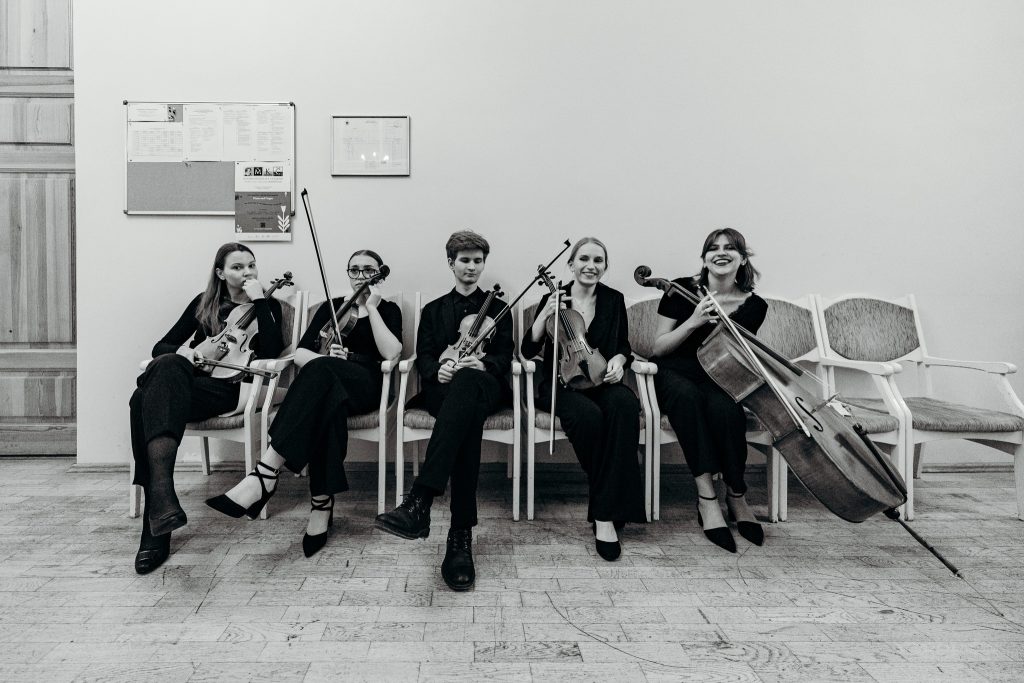Full-time Studies
Bachelor studies mean the university studies of the first cycle providing the bachelor’s degree and OR) the professional qualification. The bachelor study programme is dedicated to developing general erudition and acquiring professional knowledge and skills.
The volume of the first cycle study programme resulting in the bachelor’s degree is 240 credits, of which:
- a minimum of 120 credits shall be allocated to the achievement of the learning outcomes of the field study (including the practical training – and preparation of the final thesis).
not more than 120 credits are allocated to optional studies established by the Academy or chosen by a student.
Master studies mean the university studies of the second cycle providing the master’s degree and/or the professional qualification. The master study programme is dedicated to the development of personal scientific (artistic) professional qualifications and the acquisition of knowledge and skills of problem-solving, idea generation and application in the context of scientific (artistic) research.
The second cycle of study programmes resulting in a master’s degree in a major study field can consist of 90 or 120 credits, of which:
- at least 60 credits shall be allocated to the field studies that result in learning outcomes specified in the field description
- at least 30 credits must be allocated to the final thesis (project). The master thesis in arts should be a creative project and research paper related to this project;
The volume of one semester amounts to 30 credits (ECTS).
Study credit means a unit of volume of studies used to calculate the average workload of a student required to achieve the learning outcomes. One credit is equal to 25-30 students’ working hours, including the contact hours (spent in classrooms) and independent work.
Student workload is the time taken to achieve the intended learning outcomes. The volume of studies is indicated by the number of credits allocated for a study subject (module):
- 40 hours per week are allocated to achieving 60 study credits per study year, which amounts to 1600 hours per year.
Student workload consists of the following activities:
- contact hours with a lecturer (individual and group sessions) in a classroom. Contact hours can also be remote if it is provided for in the study subject (module) description.
- individual work consists of self-preparation, the study of methodological and scientific literature, practical work, information gathering, research, preparation for assessment and other activities related to the achievement of learning outcomes.
Quality Assurance
Lithuanian Academy of Music and Theatre is fully recognized by the Lithuanian Government, Bachelor’s and Master’s degree programmes at LMTA are either accredited by the Centre for Quality Assessment in Higher Education SKVC.
The quality of art, research activities and studies is assured through the internal quality assurance system, the external evaluation and accreditation of study programmes, as well as the external evaluation and accreditation of the results of art and research activities. The internal research and higher education quality assurance system is based on the provisions on quality assurance in higher education applicable in the European Higher Education Area and established in the Strategy of the Academy. Depending on their position, members of the Academy community are in charge of continuous improvement of the internal system for quality assurance in art, research activity and higher education and the overall development of quality culture in the Academy.

